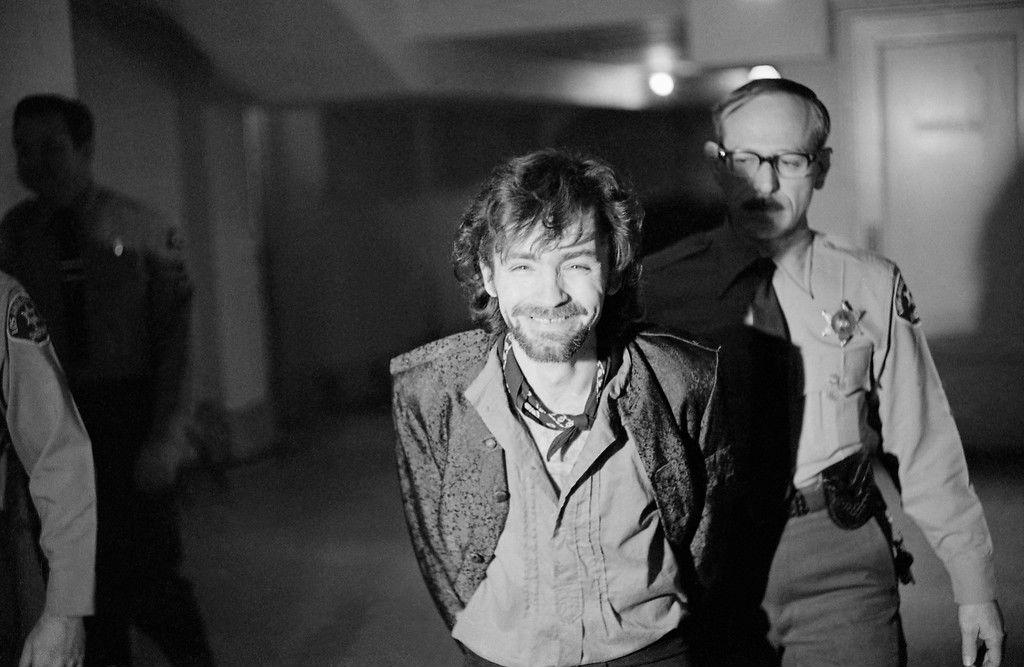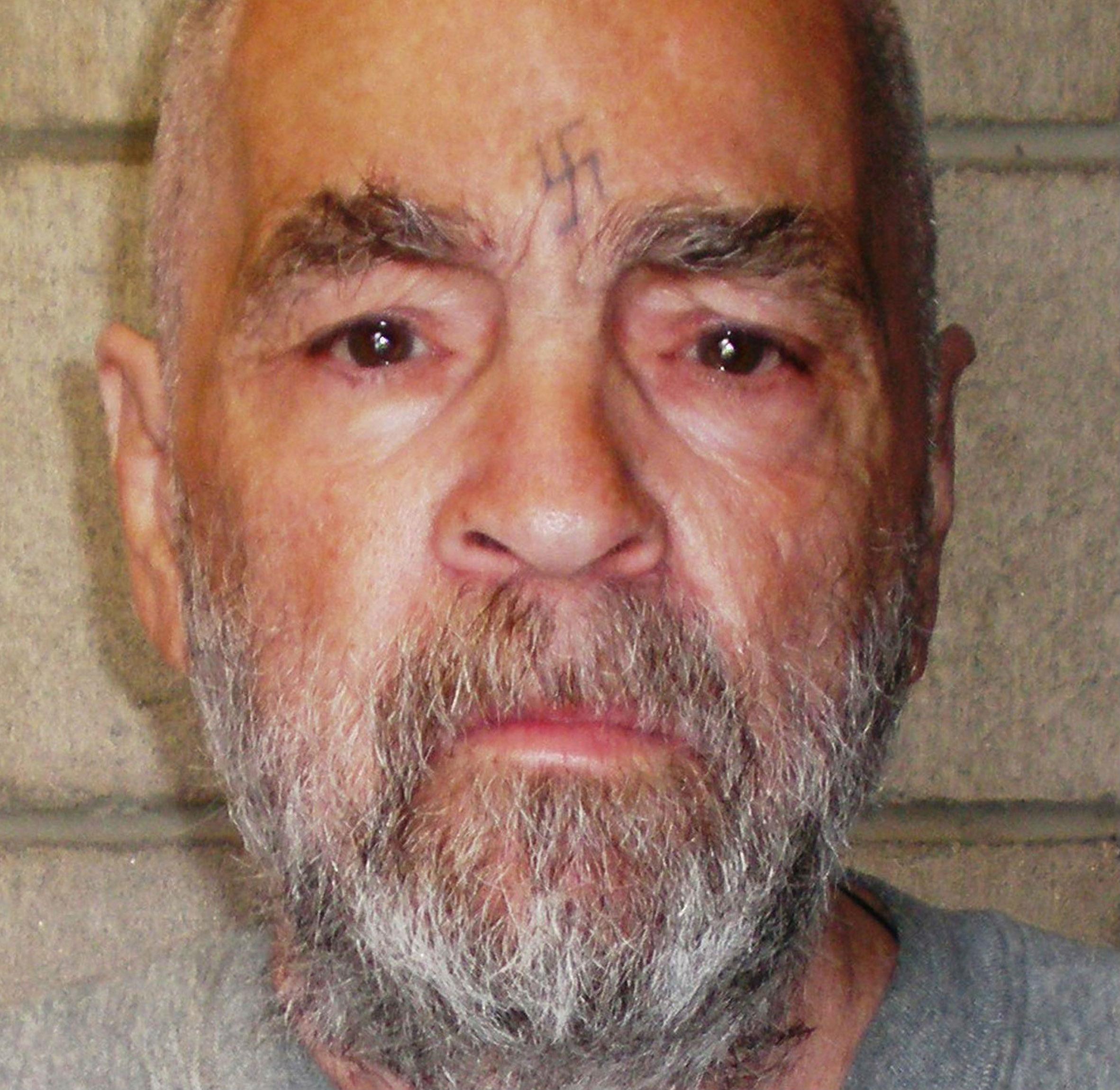Charles Manson's death raises questions over how his body will be disposed to avoid shrine
Officials have ten days to decide what to do

Prison officials in California are trying to decide how to dispose of the body of Charles Manson and help ensure the remains of the late cult leader do not become part of a ghoulish shrine.
Manson, 83, who orchestrated the murders of pregnant actress Sharon Tate and six other people in Los Angeles in the summer of 1969, died in hospital, having been taken there suffering from gastrointestinal bleeding. He had been incarcerated most recently at the Protective Housing Unit at California State Prison at Corcoran, 180 miles northwest of Los Angeles.
Manson was convicted in 1971 of first-degree murder for plotting the killing of seven people, who were slain by his followers, known as the so-called Manson Family. Many of those followers remain in prison, where their appeals for parole have been repeatedly refused.
Manson’s hippie cult persona triggered fear and terror in millions of Americans decades ago. The murder of the actress Tate, and the subsequent investigation and prosecution of the man who once dreamed of being a singer-songwriter, gripped the media.
“People are saying that this should be some kind of relief, but oddly enough, it really isn’t,” Sharon Tate’s sister, Debra Tate, told ABC News following Manson’s death on Sunday.
“While Charlie may be gone, it’s the ones that are still alive that perpetrated everything, and it was up to their imaginations for what brutal things were going to be done. In an odd way, I see them as much more dangerous individuals.”
Vicky Waters, a spokeswoman for the California Department of Corrections and Rehabilitation, said it had yet to be determined what will happen to Manson’s remains. According to state regulations and section 5061 of the California Penal Code, if no relative or legal representative claims the body within 10 days, it is up to the department to determine whether Manson’s body is cremated or buried.
Ms Waters refused to reveal what steps were being taken to ensure that Manson’s remains did not become part of some kind or shrine for either those still attracted to him, or simply those with a ghoulish interest.
“I’m not able to discuss those details,” she said. “All I can say is that the department will comply with California law on this matter.”

In the case of serial killer Ted Bundy, who admitted to 30 murders before he was executed in 1989, his remains were cremated and his ashes were scattered at an undisclosed location in the Cascade mountains in Washington State, according to his will.
The Associated Press said it was unclear if Manson, who handed out knives and ordered his followers to kill high-profile people in a bid to start a race war, requested funeral services of any sort. It is believed he has no living relatives.
It is also unclear what will happen to his property, which is said to include artwork and at least two guitars. State law says the department must maintain his property for up to a year in case someone makes a claim to it.
The Manson Family slaughtered five of its victims on August 9 1969 at Tate’s home – the actress and coffee heiress Abigail Folger, celebrity hairdresser Jay Sebring, Polish movie director Voityck Frykowski and Steven Parent, a friend of the estate’s caretaker. Tate’s husband, director Roman Polanski, was out of the country at the time.
The next night, a wealthy grocer and his wife, Leno and Rosemary LaBianca, were stabbed to death in their home. The killers scrawled such phrases as “Pigs” in blood at the crime scenes.
After a trial that lasted nearly a year, Manson and three followers, Susan Atkins, Patricia Krenwinkel and Leslie Van Houten, were found guilty of murder and sentenced to death. Another defendant, Charles “Tex” Watson, was convicted later. All were spared execution and given life sentences after the California Supreme Court struck down the death penalty in 1972.
Atkins died behind bars in 2009. Krenwinkel, Van Houten and Watson remain in prison.
Another follower of Manson, Lynette “Squeaky” Fromme, tried to assassinate President Gerald Ford in 1975, but her gun jammed. She served 34 years in prison. When she was released she went to live in New York state.
Join our commenting forum
Join thought-provoking conversations, follow other Independent readers and see their replies
Comments
Bookmark popover
Removed from bookmarks